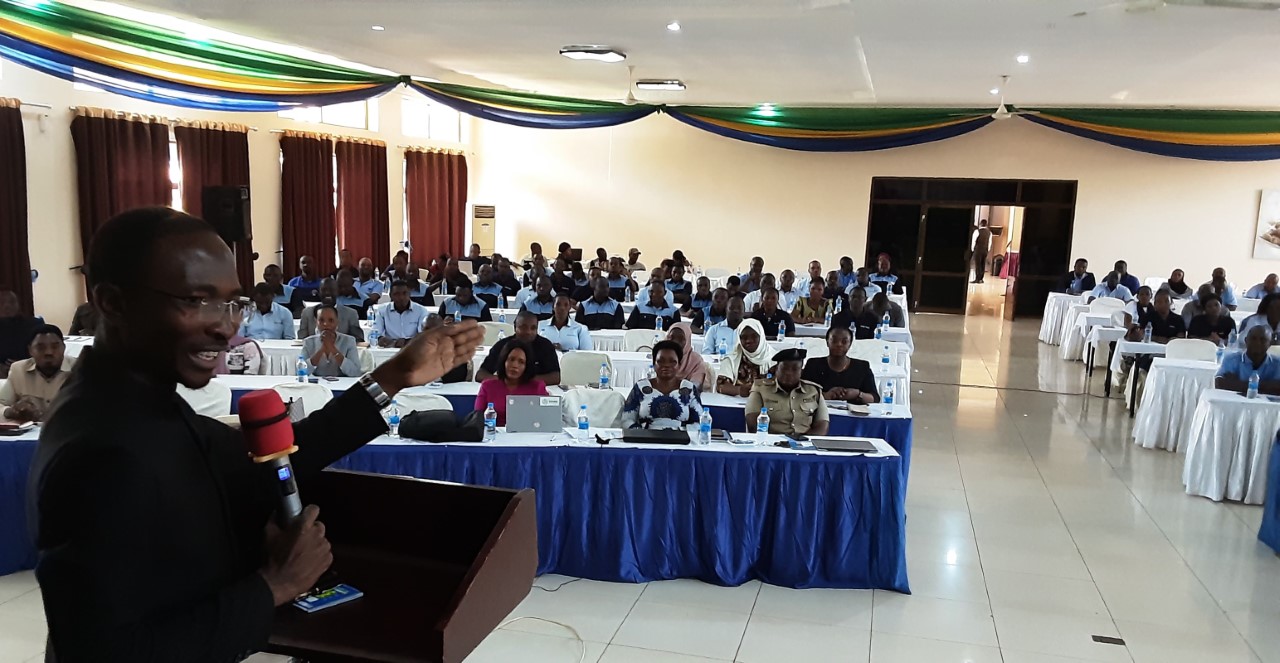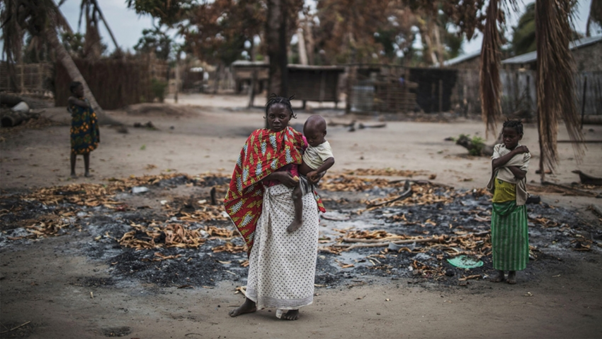Women take to streets to demand end to South Sudan war
December 11, 2017
Hundreds of women take to the streets of the capital, Juba, to call for an end to the country's devastating war.
They marched in silence, yet their message was loud and clear.
[caption id="attachment_42265" align="alignleft" width="583"]![The protesters in Juba said they wanted a better future for their children [Al Jazeera]](https://panafricanvisions.com/wp-content/uploads/2017/12/7ea6c4e9751c4e2d810cfb07b5b08c84_18.jpg) The protesters in Juba said they wanted a better future for their children [Al Jazeera][/caption]Hundreds of women covered their mouths with tape on Saturday as they took to the streets in South Sudan's capital, Juba, to demand an end to their country's war and the suffering of its people.
Carrying posters and signs that read "Bring back our peace now!", "Save my future, stop the war" and "Enough of the bloodshed", women of all ages expressed their anger at a conflict now entering its fifth year.
"We, the women of South Sudan, have decided that we have had enough of this. This war has been going on for a long time," a demonstrator said after briefly removing the piece of white tape from her mouth.
"Women continue to be raped and killed; they don't have access to their homes, and there is no humanitarian access for people in need," she told Al Jazeera.
"We are tired and fed up of this, and we want our leadership to understand that this is their final chance to bring peace to this country."
The protesters in Juba said they wanted a better future for their children [Al Jazeera][/caption]Hundreds of women covered their mouths with tape on Saturday as they took to the streets in South Sudan's capital, Juba, to demand an end to their country's war and the suffering of its people.
Carrying posters and signs that read "Bring back our peace now!", "Save my future, stop the war" and "Enough of the bloodshed", women of all ages expressed their anger at a conflict now entering its fifth year.
"We, the women of South Sudan, have decided that we have had enough of this. This war has been going on for a long time," a demonstrator said after briefly removing the piece of white tape from her mouth.
"Women continue to be raped and killed; they don't have access to their homes, and there is no humanitarian access for people in need," she told Al Jazeera.
"We are tired and fed up of this, and we want our leadership to understand that this is their final chance to bring peace to this country."
Devastating conflict
South Sudan was founded with optimistic celebrations in the capital on July 9, 2011, after it gained independence from Sudan in a referendum that passed with close to 100 percent of the vote.
The country descended into conflict in December 2013 after President
Salva Kiir accused Riek Machar, his former deputy who he had sacked earlier that year, of plotting a coup.
Civil war broke out when soldiers from Kiir's Dinka ethnic group disarmed and targeted troops of Machar's Nuer ethnic group. Machar and commanders loyal to him fled to the countryside, and tens of thousands of people died in the conflict that followed. Many starved to death.
A peace accord was signed in August 2015 and
Machar returned to the capital in April last year to share power with Kiir.
However, the deal fell apart and fighting continued.
The war has resulted in tens of thousands of people being killed and a quarter of the country's 12 million population forced from their homes
According to the UN, six million people - half of the country's population - are in desperate need of humanitarian assistance.
More than 1.2 million are at risk of
famine if humanitarian assistance is not delivered by next year.
Al Jazeera's Hiba Morgan, reporting from the march in Juba, said attempts are under way to "revitalise that [peace] process".
"There are efforts right now to try and bring together all the warring sides and put an end to the conflict, which the women here say has taken so much from them and their future."
*Source Al Jazeera






![The protesters in Juba said they wanted a better future for their children [Al Jazeera]](https://panafricanvisions.com/wp-content/uploads/2017/12/7ea6c4e9751c4e2d810cfb07b5b08c84_18.jpg)
























